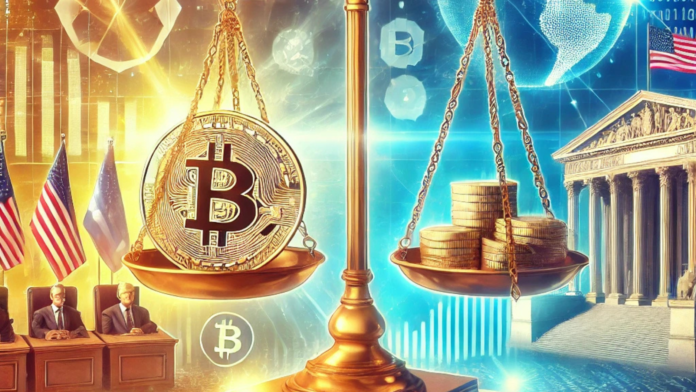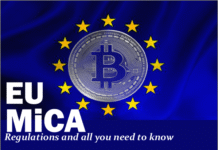The cryptocurrency market, known for its volatility and rapid evolution, is heavily influenced by political developments. From regulatory frameworks to global power dynamics, political decisions and rhetoric have a profound impact on the value, adoption, and perception of digital assets.
Regulatory Approvals and Restrictions
- Pro-Crypto Policies
Countries with crypto-friendly policies, such as Singapore and El Salvador, have encouraged innovation and adoption. For example, El Salvador’s decision to adopt Bitcoin as legal tender in 2021 continues to influence its economy, inspiring other nations to explore similar moves.In 2024, the United States’ approval of spot Bitcoin ETFs under a more crypto-supportive administration led to a surge in Bitcoin prices, reflecting how political actions can directly affect market dynamics【7†source】【9†source】.
- Regulatory Crackdowns
Conversely, restrictive policies can create downward pressure. China’s repeated crackdowns on cryptocurrency mining and trading, including its 2021 ban on crypto transactions, temporarily shook global markets and forced miners to relocate. Similarly, India’s fluctuating stance on crypto regulations has contributed to market uncertainty.
Global Power Struggles and Crypto Adoption
- Sanctions and Digital Alternatives
Cryptocurrencies have become a tool for bypassing traditional financial systems, especially in countries facing international sanctions. Nations like Russia and Iran have explored using cryptocurrencies for trade to circumvent restrictions, leading to geopolitical tensions. - CBDCs as State-Controlled Alternatives
Many governments are developing Central Bank Digital Currencies (CBDCs) to maintain monetary sovereignty and counter the decentralized nature of cryptocurrencies. The rise of CBDCs, especially from major economies like China with its digital yuan, reflects a strategic political effort to balance innovation with control.
Political Rhetoric and Market Sentiment
The influence of political rhetoric on crypto markets is significant. High-profile endorsements or criticisms from leaders and institutions can move markets almost instantly. For instance:
- Elon Musk’s public statements about Bitcoin and Dogecoin have repeatedly caused price swings.
- Former U.S. President Donald Trump, once critical of cryptocurrencies, has softened his stance, potentially contributing to greater market optimism during his second term【9†source】.
Similarly, international summits addressing crypto regulations, such as the G20, often lead to speculative market movements based on anticipated policies.
Election Cycles and Crypto Policies
Political cycles also shape crypto markets. Pro-crypto candidates can drive investor confidence, while anti-crypto leadership may prompt market sell-offs. For instance:
- In 2024, the U.S. election results favored a pro-crypto administration, leading to regulatory clarity and increased institutional investment.
- European and Asian elections have seen parties leveraging crypto policy as part of broader economic reform agendas, reflecting its growing importance in political platforms.
Challenges of Political Influence
While political engagement with crypto can foster legitimacy and adoption, it also introduces risks:
- Overregulation: Excessive control can stifle innovation and discourage investment.
- Manipulation: Politicians may use cryptocurrencies for populist rhetoric without substantive follow-through.
- Fragmentation: Diverse global approaches create a fragmented market, complicating cross-border compliance for crypto businesses.
Conclusion
The interplay between politics and cryptocurrencies is shaping the future of the digital asset market. As governments navigate the complexities of regulation, innovation, and adoption, political influence will continue to be a defining force. For investors and businesses, understanding these dynamics is essential to navigating this evolving landscape.
The convergence of technology and governance underscores the importance of balanced policies that protect consumers while fostering growth. As cryptocurrencies gain mainstream attention, their role in political discourse will undoubtedly grow, further intertwining these two worlds.




















